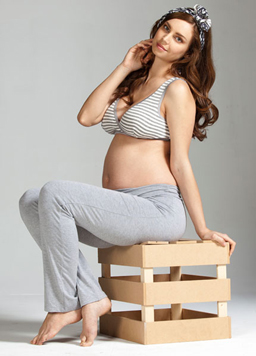
You’re ready to get pregnant – but what should you and your partner be doing? While it may be a little too early to be thinking about maternity wear or nurseries, there are things you can do immediately to improve the chances of not only getting pregnant, but having a healthy pregnancy and smooth delivery. We look at the key things for you to do to ensure smooth sailing in this new and exciting stage in your life.
1. Book in a Check Up With Your GP
Start with a thorough check-up with your GP. Make sure you get a pap smear as well and discuss any required vaccinations with your doctor. Some of vaccinations only have an effective period of ten years so you should check for the following:
· Chicken Pox
· Influenza
· Measles
· Mumps
· Rubella
If your vaccination has past its effective date, you may need to wait one to three months before trying to conceive. If you smoke and enjoy your wine, it’s probably also time to quit smoking and drinking. You can also think about taking a supplement, perhaps a multivitamin supplement with folic acid.
2. Conceiving – Optimise Your Chances
More and more people are opting to start a family later in their lives. By keeping fit and healthy and charting your cycle, you can optimise your chances of getting pregnant.
· Charting Your Cycle
Learn to accurately chart your cycle by recording your menstrual cycle, taking your body temperature and staying aware of any discharge from your cervix. The best time to conceive is when you’re ovulating. Your doctor can give you the best advice on how to chart your cycle.
· Keeping Healthy and Fit
If you don’t have a regular exercise routine, try and incorporate at least three sessions of 30 minute cardio exercise into your week. Keep fit and active, and pay attention to your diet. Eat plenty of fruit and vegetables, as well as wholegrains and lean proteins. Reduce anxiety and stress levels and be relaxed about trying to get pregnant – your body will function best if you eat well and think positive.
3. Budgeting
It’s also a good idea to have a budget or at least an estimate of how much you will need to have saved away for your new baby. Costs to factor in:
· Baby products and supplies – food, diapers, wipes
· Health and insurance costs
· Childcare costs
· Baby gear – strollers, carriers, prams, car seats, mattresses
· Furniture
· Maternity dresses
· Reduced income from maternity leave or one parent staying home to care for baby
4. Work and Maternity Leave
It’s appropriate to start thinking about your employment and work, and planning maternity leave. There’s no need to tell your employer that you’re planning to start your family, but if you have very strong commitments at work or have a major project, you may want to delay getting pregnant for a few months or start thinking about who can take over the project in your absence.
5. Health Cover
Most private health insurance packages will only cover in-hospital services. This means if you incur medical costs during your pregnancy, you won’t be able to claim these back from your provider. If required, adjust your cover accordingly.
Think about whether you want to go private or public for your delivery. With a public delivery, you won’t be able to choose the doctor for delivery. Though private deliveries can cost over $7,000, you can choose your doctor and have your own room.
